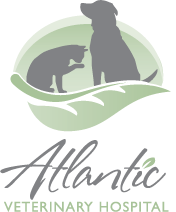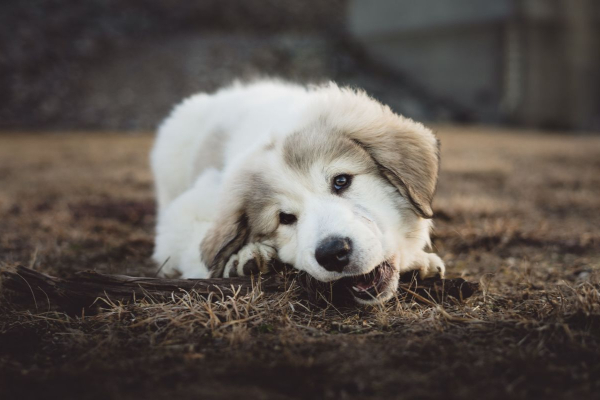1. Rodent Poison
If you have a mouse in the house, and you also have a dog, you’ll want to avoid putting mouse or rat poison out.
Several chemicals commonly found in rat, mouse, and mole poisons can be deadly for dogs. Poisoning can take place directly, when a dog ingests the chemicals bromethalin (which poisons the central nervous system), or brodifacoum (an anti-coagulant that keeps blood from clotting). Poisoning can also take place indirectly, when your dog nibbles on a rodent killed by the poison.
There are many different types of rat and mouse poisons, so if your dog ingests some, it’s important to bring either the original packaging, the EPA registration number, or a sample of the poison to the veterinarian so we can accurately identify the active ingredient in the poison (which will help us determine the appropriate treatment).
Rodent poisons are only one of many items you may have around the house that can be toxic to your dog.
2. Mosquito Repellent
During mosquito season, ask your veterinarian for an appropriate product that’s safe for your dog to use, rather than using a repellent made for humans. Mosquito repellents for humans often contain DEET, which dogs are very sensitive to and may cause tremors, seizures, and even death.
3. Slug Bait
Slug bait includes brown sugar or molasses to attract slugs. Unfortunately, the sweet stuff also makes the bait irresistible to our furry friends.
In addition to brown sugar or molasses, slug bait (which comes in pellet, liquid, or powder form) typically contains the active ingredient metaldehyde.
Ingestion of even small quantities of metaldehyde can be fatal. Poisoned pets may show symptoms within minutes, and symptoms may develop up to three hours after ingestion. Learn the symptoms of metaldehyde poisoning, and safer ways to get rid of slugs.
4. Alcoholic Beverages
It may seem funny or cute to get your dog tipsy, but you should never, ever give your dog alcohol.
Similar to alcohol poisoning in humans, a dog who drinks alcohol can experience vomiting, diarrhea, decreased coordination, central nervous system depression, difficulty breathing, tremors, abnormal blood acidity, coma and even death.
5. Yeast Dough
Beer and vodka aren’t the only things than can make your dog drunk. Dogs can get drunk from eating raw bread dough!
That’s because yeast produces ethanol. In addition, yeast dough can rise while it’s in your dog’s stomach, causing painful gas to accumulate in her digestive system. This, in turn, can cause her stomach to bloat and potentially twist.
6. Cigarettes, E-Cigarette Liquid, and Nicotine Patches
In the same way that alcohol is poisonous for dogs, products that contain nicotine can kill a dog. Common reactions to nicotine include severe vomiting, depression, elevated heart rate, decrease in blood pressure, seizures, respiratory failure and, in severe cases, even death.
Be particularly careful with e-cigarette/vaping liquid, which is often flavored, making it irresistible to dogs.
7. Marijuana
With recreational marijuana legal in Washington State, we are seeing a significant increase of marijuana (THC) poisoning in dogs.
Some dog owners are treating their dog with CBD oil (without consulting with us) because they’ve heard that it’s a cure-all for practically any ailment. At Atlantic Veterinary Hospital, we get several requests per day from dog owners who want to treat their dog with CBD oil. Veterinarians do not yet have data about whether the products are safe, what the toxic dose might be, or whether the products contain a consistent amount of CBD. As such, it is illegal for us to recommend CBD oil.
Dogs are also getting into the pot brownies, so we’re seeing increases in both THC poisoning and chocolate poisoning. THC is the neuroactive substance in marijuana and definitely is toxic to dogs.
To be on the safe side, please don’t give your dog CBD oil or any marijuana products or ask us to do so.
8. Chocolate, Coffee and Caffeine
Everybody knows that chocolate is bad for dogs, but we thought we’d remind you, anyway. Chocolate contains theobromine, a chemical similar to caffeine, which is toxic to dogs.
Chocolate and coffee also contain substances called methylxanthines. When dogs ingest these substances, it can cause vomiting and diarrhea, panting, excessive thirst and urination, hyperactivity, abnormal heart rhythm, tremors, seizures and even death.
Rule of thumb: The darker and more bitter the chocolate, the more dangerous it is. Baking chocolate, semi-sweet chocolate, and gourmet dark chocolate are the most toxic types of chocolate. Toxicity is dose-dependent, meaning the smaller the dog, darker the chocolate, or bigger the volume of chocolate consumed, the more likely a problem will occur. We have calculations to help us determine if the toxic dose for a specific weight of dog. Call us right away if you find your dog has eaten chocolate. One chocolate chip cookie or a dropped M&M is not a problem, but a small square of baking chocolate can be toxic.
Keep chocolate-covered raisins, macadamia nuts, and espresso beans away from your dog, too. Not only is the chocolate poisonous, but the foods inside the chocolate are also toxic. Learn what to do if your dog eats chocolate.
9. Raisins and Grapes
Although the toxic substance within grapes and raisins is unknown, these fruits can cause kidney failure.
10. Macadamia Nuts, Almonds, Pecans, and Walnuts
Don’t let your dog go nuts… keep her away from nuts! The high fat content in nuts can cause vomiting, diarrhea, and potentially, pancreatitis. Macadamia nuts can cause weakness, depression, vomiting, tremors and hyperthermia.
11. Coconut, Coconut Water, and Coconut Oil
Small amounts of coconut-based products are not likely to seriously harm your dog. However, the oils can cause stomach upset, loose stools, or pancreatitis. Coconut water is high in potassium; don’t give it to your dog.
12. Citrus
The citric acid and essential oils present in the stems, leaves, peels, fruit, and seeds of citrus products can cause everything from minor stomach upset (when a dog eats a small amount of the fruit) to central nervous system depression (when large amounts are ingested).
13. Milk and Dairy Products
Dogs don’t have enough lactase (the enzyme that breaks down lactose in milk), so dairy-based products can cause digestive upset and diarrhea. Licking your cereal or ice cream bowl is usually not a problem, but more than that can cause GI upset.
14. Raw/Undercooked Meat, Eggs and Bones
Raw meat and raw eggs can contain bacteria such as Salmonella and E. coli that can be harmful to dogs (and humans). Ingesting raw eggs can lead to skin and coat problems. When your dog chews on raw bones, she can choke or get punctures in her digestive tract. Chewing on bones also frequently breaks teeth, causing extreme pain and requiring surgical removal of the broken tooth.
15. Salt and Salty Snack Foods
Keep bags of chips, pretzels, and salted popcorn far away from your dog.
Heavy doses of salt not only make your dog really thirsty (and cause excessive urination), but salty foods can cause vomiting, diarrhea, depression, tremors, elevated body temperature, seizures and even death.
16. Xylitol and Sorbitol
These two items are used as a sweetener in products such as gum, candy, toothpaste, sugar-free foods, baked goods, laxatives, and other medications.
Even a tiny amount of xylitol (a stick of sugarless gum) can lead to hypoglycemia (a dangerous drop in blood sugar). Symptoms may include vomiting, lethargy, loss of coordination, seizures, and can lead to liver failure.
Sorbitol, when consumed in large doses, can cause loose stools or diarrhea.
17. Breath Mints and Breath Strips
Human breath fresheners may contain menthol, which can irritate the tissues of the mouth and the gastrointestinal tract. Some breath-freshening products may also contain the sweetener xylitol (see information above on xylitol).
If your dog has bad breath, talk with your veterinarian. Together, you can come up with an appropriate oral and dental health plan.
18. Petroleum Jelly
Dogs have been known to eat practically anything, and petroleum jelly is no exception. If she ingests enough, expect diarrhea and possibly vomiting.
19. Bar Soap and Face Wash
Ah, those sweet-smelling soaps! So irresistible to a dog’s sniffer and taste buds.
But your dog is probably not smart enough to spit out the soap; instead, she’ll swallow it, which can cause loose stools, diarrhea, or vomiting (all of which can lead to dehydration). And if your dog decides to eat an entire bar of soap, her gastrointestinal tract can get clogged.
What to do if you think your dog was poisoned
Call your regular veterinarian or local veterinary emergency hospital immediately. The sooner we can start appropriate treatment, the better.
Call the ASPCA Animal Poison Control Center Hotline: (888) 426-4435 (fee-based).
Or call the Pet Poison Helpline (fee-based).
Learn more about dog hazards and toxins
Animal Poison Control Center Podcast
Download a free mobile app from the Animal Poison Control Center that will:
- help you identify over 300 potential hazards and toxins found in and around the home
- provide crucial information about the severity of the problem
- suggest critical next steps










